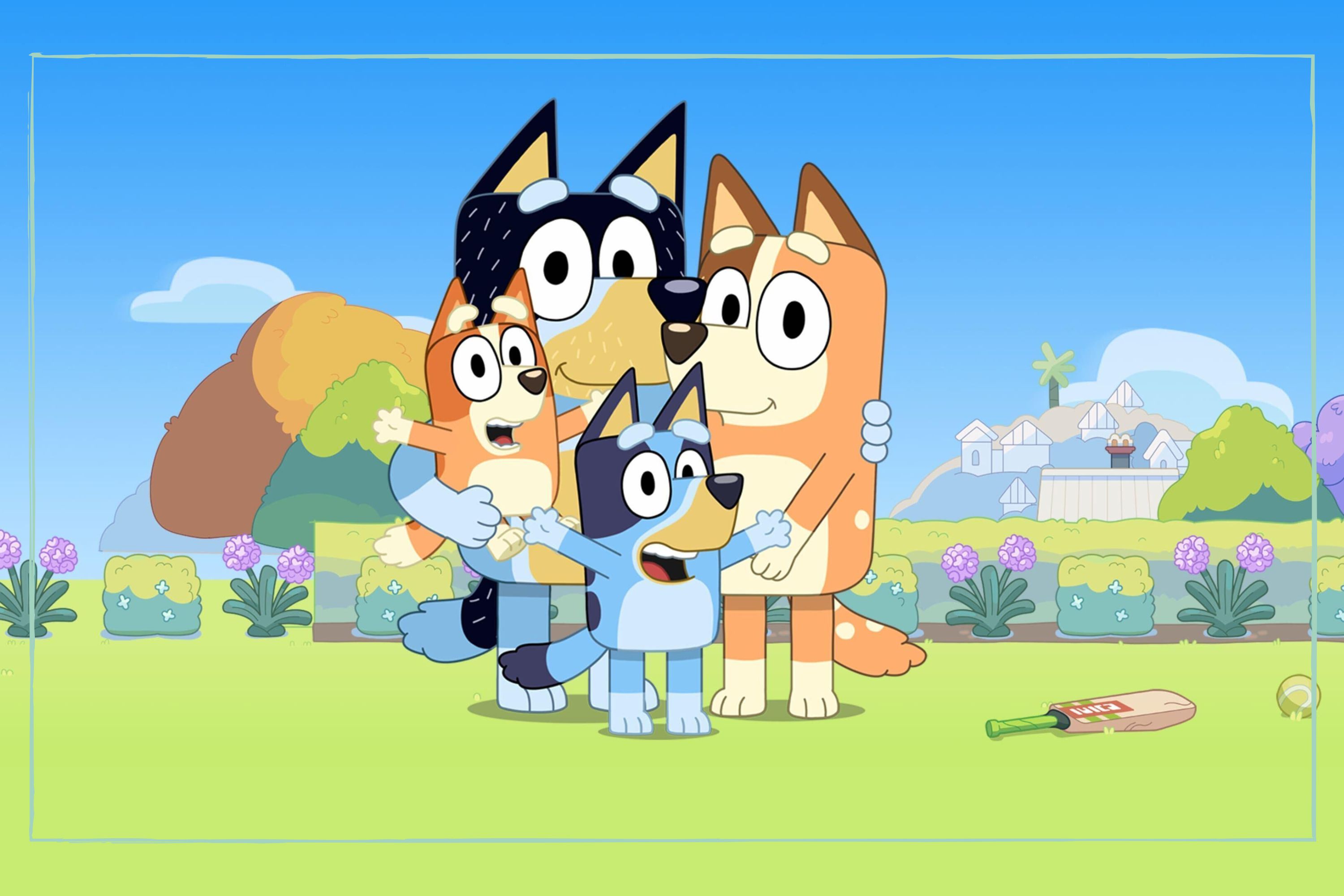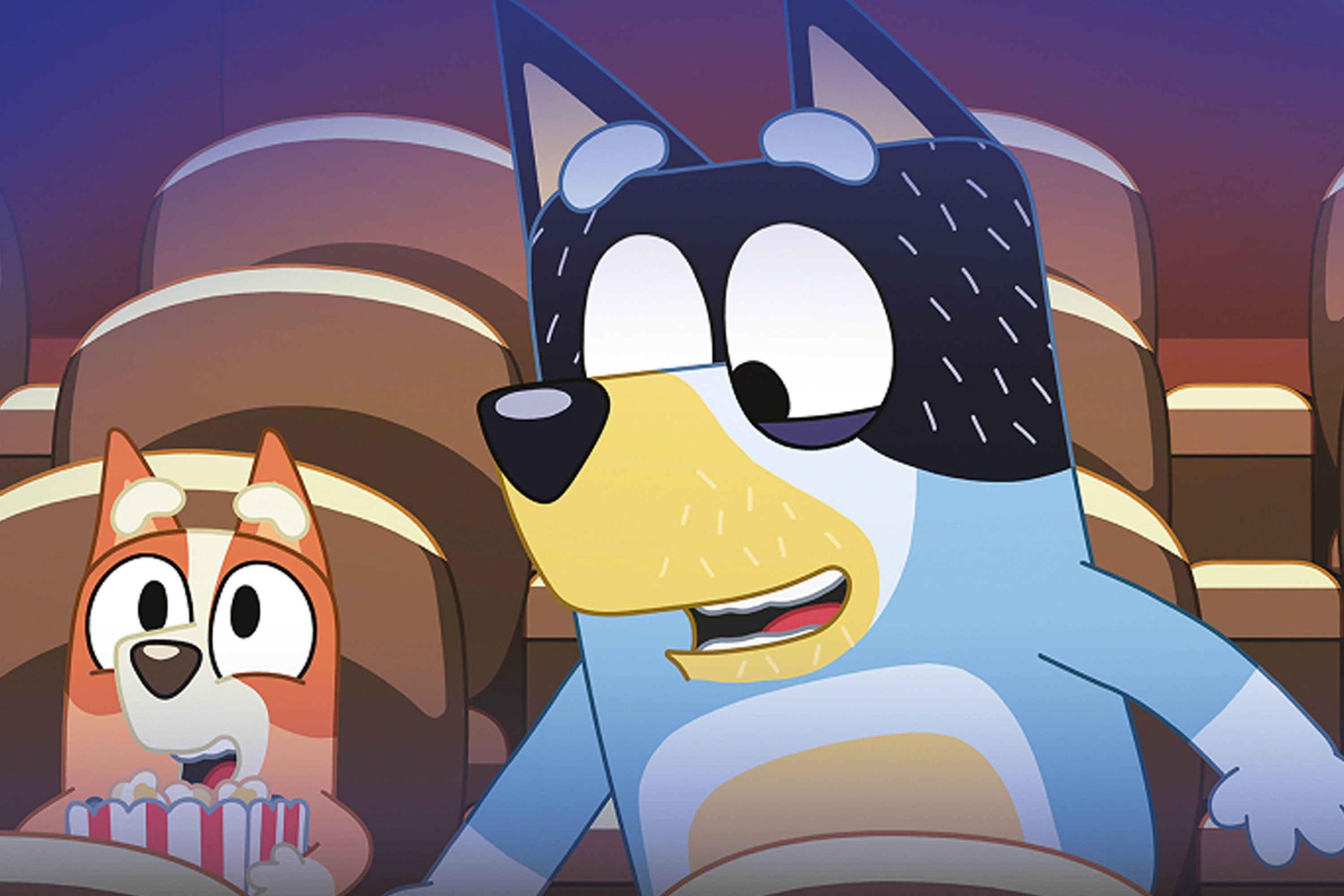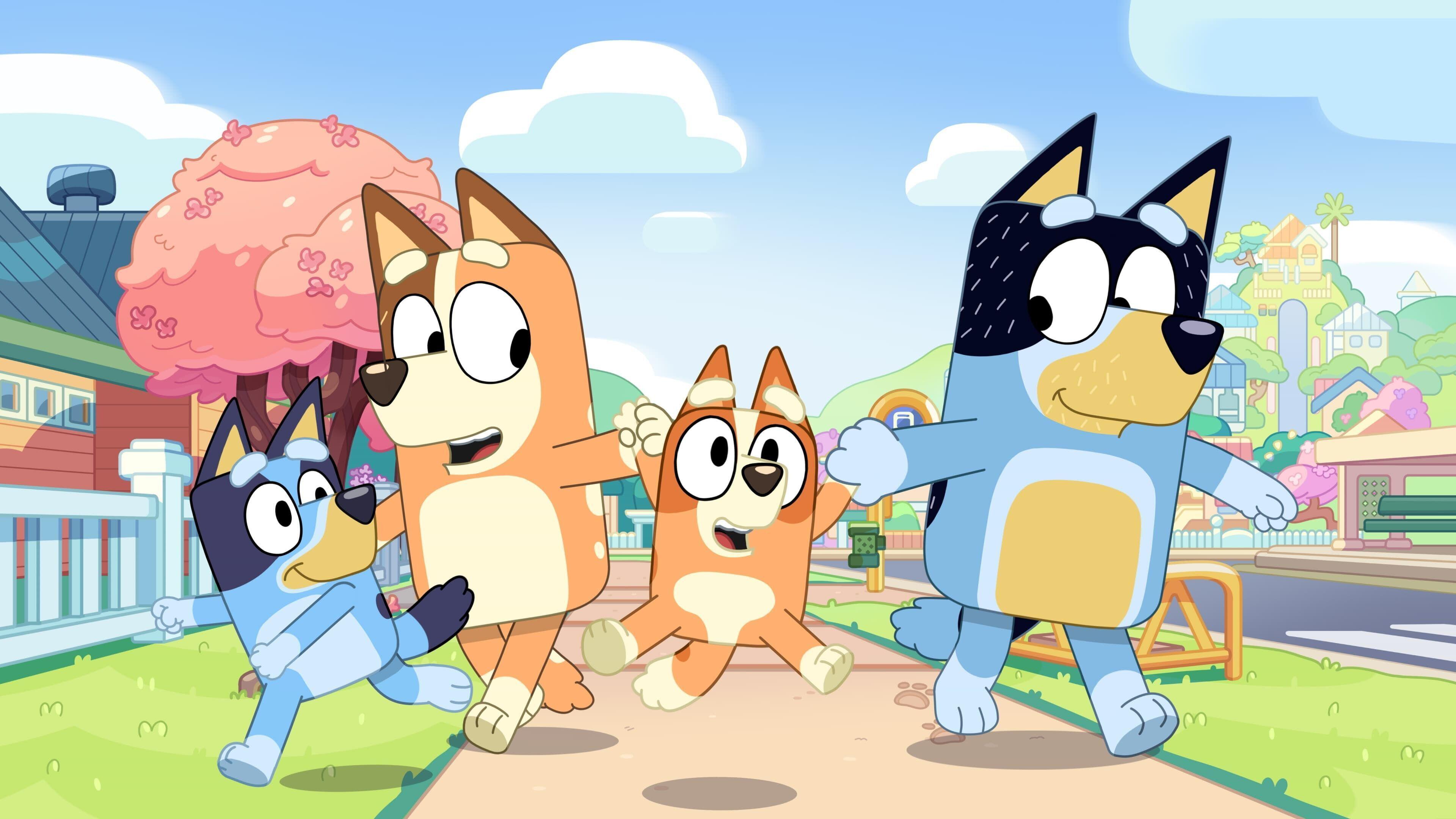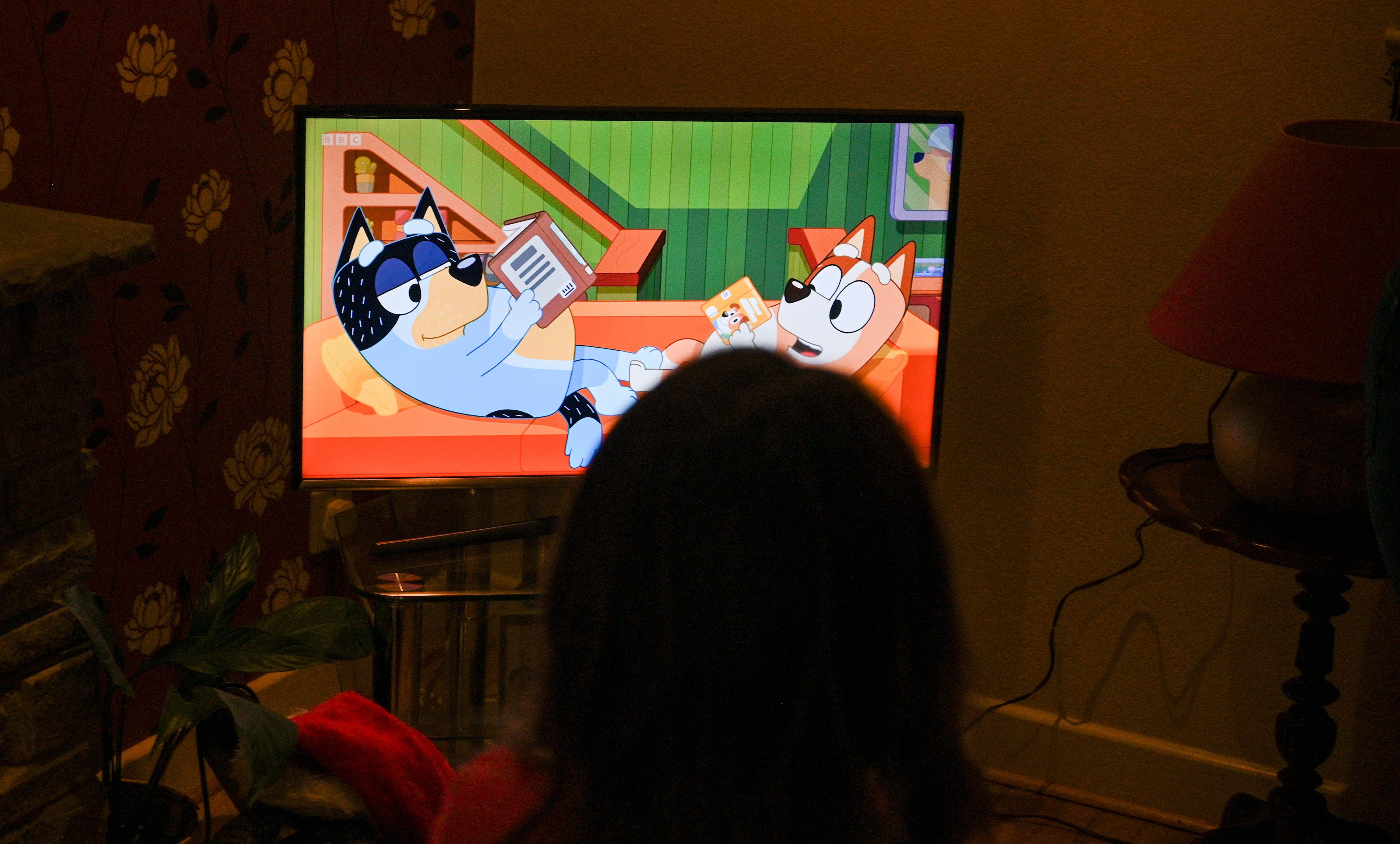
Bluey is a rare and wonderful show that both kids and parents can't get enough of. Full of heart and plenty of positive messages to teach our kids, even the experts love the show - here's why.
Bluey's adventures have grown an ardent and dedicated following around the world. Along with her family and other dog friends, the famous Blue Heeler puppy even has celebrity fans and a dedicated podcast - Natalie Portman and Ryan Gosling have been vocal about their love for the show. With three seasons and 151 episodes under its belt, critics and experts in child development rave about its depiction of modern parenting, which is reflected in the plethora of awards it's notched up. Of all the kids movies and TV shows available, Bluey is in a class of its own.
GoodtoKnow's Family Editor, Stephanie Lowe, is a huge fan of the show. She said "I know I'm not alone when I declare that Bluey is the best kids TV show out there. The messaging hits way more than it misses, and everything they do is so relatable. Me and my mum friends have a 'wwbpd' mantra ('what would Bluey's parents do') whenever we're stuck with a parenting reaction."
Helen Hazell-English is a registered BACP counsellor specialising in working with mums, and a Bluey fan. She told us "Bluey is gorgeous because we see the full richness of life's ups and downs. Challenging and complex experiences are explicitly explored - for example, Aunt Brandy's infertility in 'Onesies', teaching Bingo to use her big girl bark in 'Yoga Ball' - this is all about consent, assertiveness, self-esteem, and boundaries. Bluey is my favourite children's TV show because it is so honest and wholehearted in its depiction of family life and of contemporary parents doing their best."
Why Bluey is different to other kids' shows
Bluey portrays relationships and dynamics that are relatable to any age. Often touching on deeper subjects that other kids' shows shy away from, Bluey manages to trust its young audience to follow the fast pace of its short episodes. With expertly balanced themes of everyday challenges, joys, and family experiences, the creators drew on their own parenting experiences for each episode - this creates an unparalleled realness running throughout the series.
There isn't a psychologist on the Bluey team, but creator Joe Brumm took a deep dive into child psychology to write the scripts - although he's keen to emphasise he isn't an expert in the area. Speaking to the Sydney Morning Herald, Brumm explained that his interest in child psychology began when his eldest daughter started school and just couldn't settle. When moved to a different school placing less focus on academic achievement and more on unstructured play, she thrived.
Inspired by this school experience, Brumm obsessively read academic literature about how children play, telling the publication, "As soon as you see a field and you realise people study it, I’m the sort of person who gets curious and goes: 'Oh wow, there’s, like, a whole structure to this thing.'" During this time, he noticed how much his children learned through play, as well as how they used play to sort out disagreements among themselves.
Brumm added "You know how everyone’s got that d**k at work who doesn’t get along with people? My mindset is that I want my kids to be smart academically, but an equal part of it is that they work well with other people. It became fascinating to me and I just thought, 'You know what? This is going to form the backbone of a lot of scripts for Bluey.'"
It's the marriage of academic roots coupled with Brumm's personal experiences that bring true meaning to Bluey episodes. The show has itself been the subject of, and cited in academic papers. BACP accredited counsellor and founder of Mum Therapy Helen Hazell-English, offered us her expert opinion on why Bluey stands out from other kids' shows.

Helen said, "Bluey is different from other kids' shows because it centres both the parents and the children's lives in beautiful detail. It shows that in a family we are all interlinked and all important. The Heelers are a strong team because they acknowledge that everyone has needs, strengths and struggles. We see everyone's perspectives as they live and learn about being human - grown-ups and kids."
Helen added, "The binaries of the perfect parenting myth are challenged by Bluey. I see a lot of guilt and self-criticism in mothers I work with. Trying to be 'good' (perfect) mothers and worrying that anything less is 'bad.' In Bluey, we see the mix and messiness of reality - the parents are sometimes tired, sometimes annoyed, they have their own worries. And they keep showing up and are kind to themselves and each other as they try their best. They have inevitable ruptures with the children, and they repair."
The realities of motherhood are one of the main reasons mum-of-one Nia loves Bluey. She told us "Bluey's dad is really involved with the children and defies the tropes of a bystanding father while the mother does everything. I like showing my child that women can head off to work while dad is parenting, which Chilli does. But she still has wobbles about not being good enough, and these are some of the most realistic depictions of everyday mum worry that I've ever seen on TV."
What Bluey teaches kids (and parents)
Bluey's teachings sit firmly in the camp of learning through play. This is where the focus of Joe Brumm's dedicated research for the scripts shines through, as Bandit engages in hours of imaginative play with his children. Within the educational play theme, The Conversation outlines how Bluey teaches everything from supporting creativity, to fostering self-regulation.
When Bluey is depicted trying to build a dam and looking like she might fail, instead of stepping in to help, her mother lets her keep going. This can teach children that achieving their goals can be difficult and they'll need plenty of resilience to get there. It also teaches parents not to step in too quickly and let their kids find creative solutions to their problems.
Episodes show kids that anything can be turned into a mechanism for fantasy play, and expensive toys and gadgets aren't required. While letting Bluey and Bingo take the lead in their imaginary play, they're handed the opportunity to process complex emotions - the kids are allowed their feelings when it comes to a wide amount of difficult emotions - grief, abandonment, separation anxiety - you name it, Bluey has covered it.

Grownups tuning in are taught important lessons for their kids, but the very important mantra is that they aren't alone. With infertility, expanding your family and a very real depiction of pregnancy playing out, parents are united by the way the series makes their needs seen and respected.
Mum-of-one Alaina suffered secondary infertility after the birth of her child. She said "Watching the episode where Chilli effectively tells her girls their aunt can't have children made me cry. As well as feeling less alone after watching it, the episode showed me it's ok to start talking about my feelings and how to start conversations about them with my son when he's older."
Helen Hazell-English is keen to spread word of the show's bright messages, as well as the deeper ones. She said "Most of all, the show is very joyful, loving, and fun. Bluey shows us the abundance that is possible in relationships and life if we trust that all parts of us are allowed, that people will still be there for us and value us even if we are in a bad mood, make a mistake or we have a conflict."
Six reasons parents love Bluey
1. It keeps children engaged outside of the show
GoodtoKnow Family Editor Steph told us her little boy can continue games he's seen on Bluey for days after watching the episodes. She said, "In the 'feather wand' episode, Bingo has a feather wand that makes everything heavy and the whole episode is about connection. Bandit, Chilli and Bluey buy into Bingo's playfulness and everything becomes heavy. It's really cute the messaging and a game my little boy loves to play often."
Steph did however confirm that beginning this game as the school run is around the corner can be challenging, concluding, "It's brilliant to see, but when your kid does it when you're already 10 minutes late it can be.... hard work. For that reason I sometimes jokingly say that Bluey can be love/hate... but I have to say, mostly love."
2. It increases understanding of childhood experiences
Bluey doesn't sugar coat its topics, and demonstrates that children deserve to be taught the truth when it comes to grief and loss. Understanding their experience of these subjects will help parents become acquainted with their child's feelings. Helen Hazell-English told us, "Our understanding of child development and neuroscience has developed so much since the last generation were parenting us.
"Many parents are now trying to be more child-led and attuned to their own feelings as well as those of their children. In general, I observe that parents are more psychologically aware and striving to tolerate, discuss and take responsibility for a wider range of experiences. And that's what I see in Bluey."
3. Bluey models effective parenting strategies
There are many examples of effective parenting in the show, but a particularly poignant one is Bandit wanting to stop and chat to a friend. Bumping into the friend while out with Bluey, Bluey soon tires of waiting for her turn to speak and interrupts the conversation.
Bandit later decides with her that in future if he's having an adult conversation, she can touch his arm and he'll close his fist around her hand. This solution - reached together - models that parents are allowed their time to have uninterrupted chat, while validating a child's need to be acknowledged.

4. It breaks gender stereotypes
Bandit and Chilli both have jobs, but it's Chilli who is mostly seen going out to work. Bandit is often considered to be the antithesis of Peppa Pig's Daddy Pig - the other famous but bumbling and inept dad of the cartoon world. Bandit works from home and undertakes household chores.
Although some have alluded to Bandit's role making them feel inadequate, the importance of smashing the idea of gendered roles from a young age shouldn't be downplayed. Watching equality in the way work and home life are managed and how paid and unpaid labour is divided, provide valuable lessons in gender equality issues for the future.
5. It shows parents they don't always have to be perfect
Yes, Bandit mostly seems to thrive on playing with his children, but he also tires of it on occasion. There are plenty of sighs and exasperated looks to the sky when play gets too rough for Bluey and Bingo's exhausted parents. Some researchers suggest the fact they take a deep breath and continue playing with their children models the mantra of being the parent you want to be, even when you're not in the mood.
The series shows that in the moment, doing this isn't always easy. However, it demonstrates that to live a meaningful life, Bandit and Chilli have decided playing with their kids is a core value of theirs. For this reason, they continue to play with them - but it's also totally ok if they find this boring, or are thinking of what they'll be doing when the playing comes to an end.
6. It's actually funny!
It's a great feat to balance humour that appeals to kids and adults alike - although some jokes will go over the heads of little people. Mum-of-three Laura told us she unashamedly finds Bluey hilarious, and probably laughs harder than her children when they watch together.
Laura said "I never tired of watching Bluey for the laughs. In fact, when my older children weren't always interested anymore, I carried on watching it alone. My son once walked into the room and asked 'Why are you watching Bluey on your own?!' I was watching a top ten hilarious Bluey moments video on YouTube...!"
Where to watch Bluey
In the UK, all episodes of Bluey are available to watch on BBC iPlayer, and also on Disney Plus.
Although watching via iPlayer is easy and free, there are now ways to get Disney Plus for free, if you know the tips and tricks. The site has a huge amount of content, from Pixar and Marvel, to classic favourites and exclusive originals.
We have the lowdown on the best Disney Plus kids films to watch as a family. The corporation's Inside Out 2 is just around the corner and has a very important new character. If you're looking for Disney names for your baby, we've got a long list of inspiration for you.







